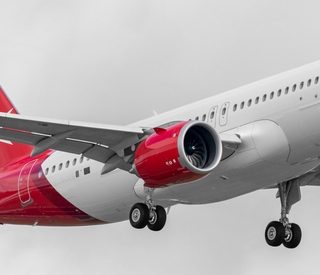Earlybird Digital East Fund — a fund associated with Germany’s Earlybird VC, but operating separately — has launched a €200m ($242m) successor fund. The fund’s focus will remain the same as before: a Seed and Series-A fund focusing on what’s known as ‘Emerging Europe’, in other words, countries stretching from the Baltics to Central and Eastern Europe, and Turkey. The firm has also promoted Mehmet Atici, who’s been with the firm for eight years, to Partner. The new fund has made four investments so far: FintechOS, Payhawk, Picus, and Binalyze.
The back-story to DEF is a fascinating tale of what happened to Europe in the last 15 years, as tech took off and Europeans returned from Silicon Valley.
Following his exit from SelectMinds (where he was the Founder & CEO) in 2005, Cem Sertoglu moved back to Turkey. Although he says he “accidentally became the first angel investor” there, he was clearly the right man, in the right place, at the right time. He told me: “I was very lucky and ended up writing the first checks in some of the first large outcomes in Turkey.”
In 2013, Sertoglu partnered with Evren Ucok (the first angel in Peak Games and Trendyol), and Roland Manger (Earlybird). Dan Lupu, a Romanian investor who had covered the region for Intel Capital, joined them, and together they raised the ‘Earlybird Digital East Fund I’ set at $150m fund in 2014, focusing on CEE and Turkey. This was and is an area where there can be high-quality ventures to be found, but very little in the way of VC.
Thereafter, between 2014 and 2019, the fund invested in UiPath, Hazelcast, and Obilet. UiPath has become a global leader in the area known as ‘Robotic Process Automation (RPA). Hazelcast is a low latency data processing platform startup with Turkish roots. Obilet is a marketplace focused for the massive Turkish intercity bus travel market. DEF has also exited Vivense, Dolap, and EMbonds and in more recent times the fund has exited Vivense, the “Wayfair of Turkey” to Actera, the top local PE fund.
The team had spectacular early success. Peak Games, Trendyol, YemekSepeti and GittiGidiyor are the four largest Turkish tech exits to date. Digital East Fund was an investor in all of them. Peak games exited for $1.8 billion in cash to Zynga only last year.
As of Q4 2020, the fund’s metrics are:
Investment Multiple: 24.9x
Gross IRR: 104.4%
Net IRR: 84.1%
So in VC terms, they have done pretty well.
I interviewed Sertoglu to unpack the story of Earlybird Digital East Fund.
He told me DEF has achieved a 17 times investment multiple on a $150 million fund. He thinks “this might be the biggest European VC fund performance in history, and it’s not coming from Berlin, it’s not coming from London, but it’s coming from Eastern Europe. We have been told by some of our LPs that they think we’re the top 2014 vintage VC fund in the world, nobody’s seen stronger numbers than this.”
“Peak Games turned out to be a phenomenal story. When you look at how tough it’s been for Turkey, macroeconomically. The fact that a single company with 100 people essentially sold for $1.8 billion in cash, was just… it was staggering for the local market here.”
DEF’s emergence from Turkey, together with its relationship with a fund in Berlin, was not the most obvious path for the VC fund.
“One thing we realized early one was that we could invest with our own capital and syndicating to our friends, but for follow-on funding, we’d always have to go global. And that made us feel vulnerable. It made us feel we were always dependent on others’ comprehension of the opportunity that we were facing. So that’s when the first fund idea came out this was,” said Sertoglu.
“We felt that there was this unusual dislocation between opportunity and capital in Eastern Europe. Our first fund was $150 million funds – I mean, a very quaint size compared to Western markets. But we became the largest fund in the region, and decided to focus on this series A gap where we felt that there was this big opportunity, because of the way we think series A is still very much a local play.”
“Being a local player that understands the region would be an advantage, so this was proven to be true. We could essentially see pretty much everything in Eastern Europe for the last eight years. And we caught the biggest one, fortunately, which was UiPath. I think very few funds around the world can say that they see the majority if not all of the opportunities that fall into their mandate,” he said.
“We have this dual strategy of backing local champions as well as contenders for global markets as well. 20 years ago you had to be in Silicon Valley. Now, Transferwise comes out of Estonia, UiPath comes out of Romania. And that was even before the pandemic.”
Sertoglu concluded: “So we now have fresh capital, coming on the heels of a very successful first fund, which we’re keen to deploy. We’re calling all the opportunities, seeing very ambitious, strong teams coming out of the region. And we have 200 million euros to focus on these types of opportunities in the region.”






